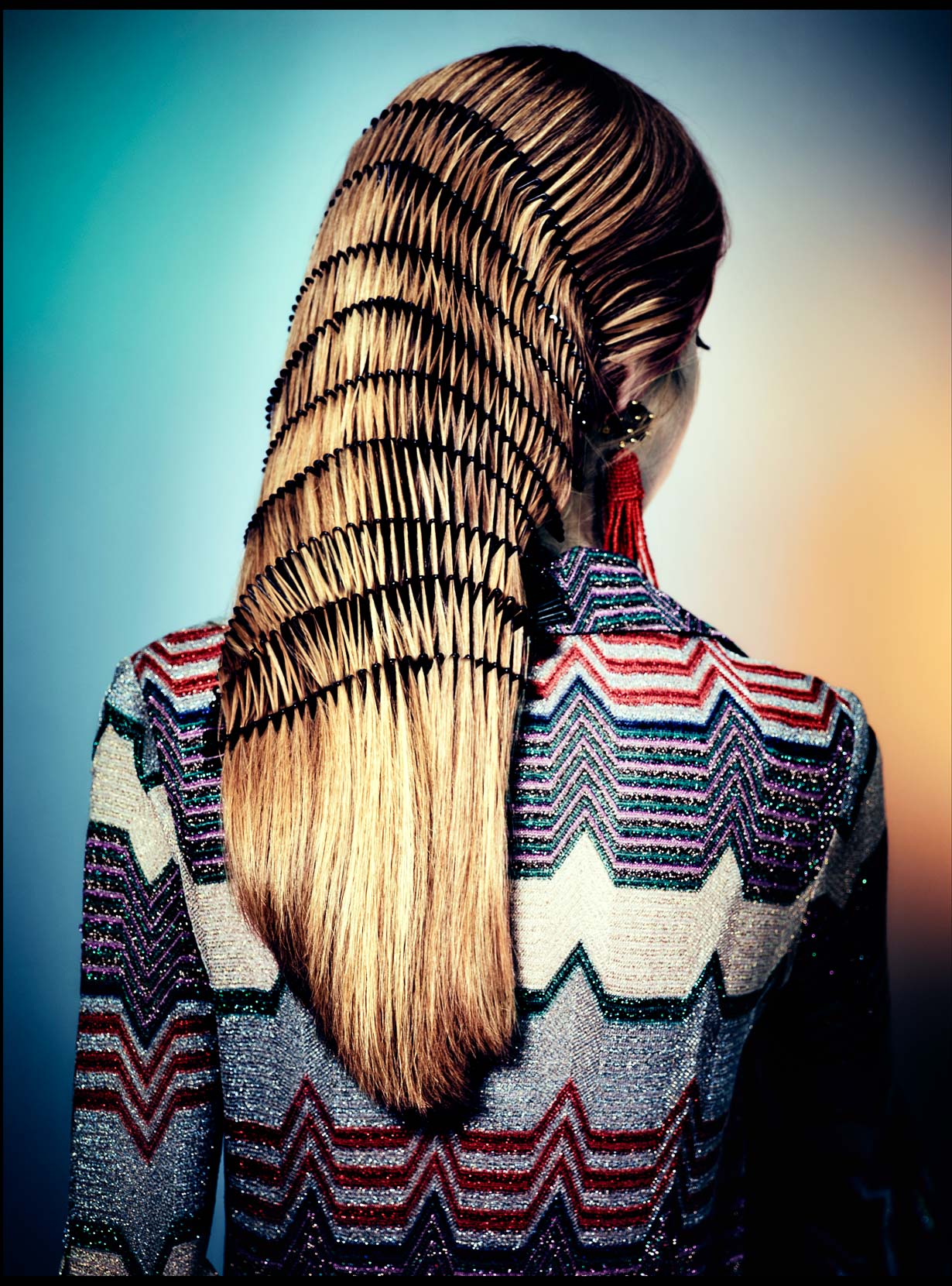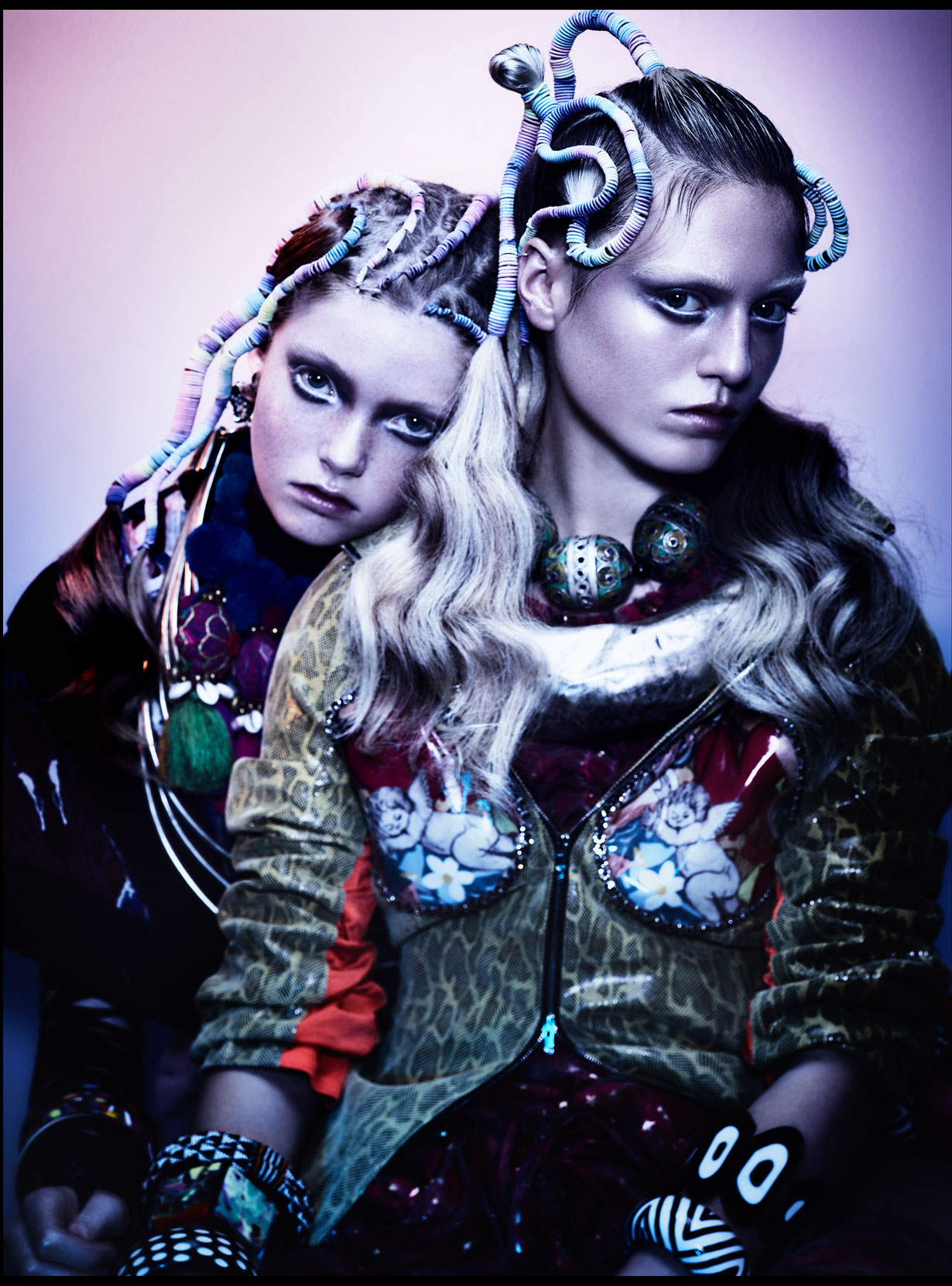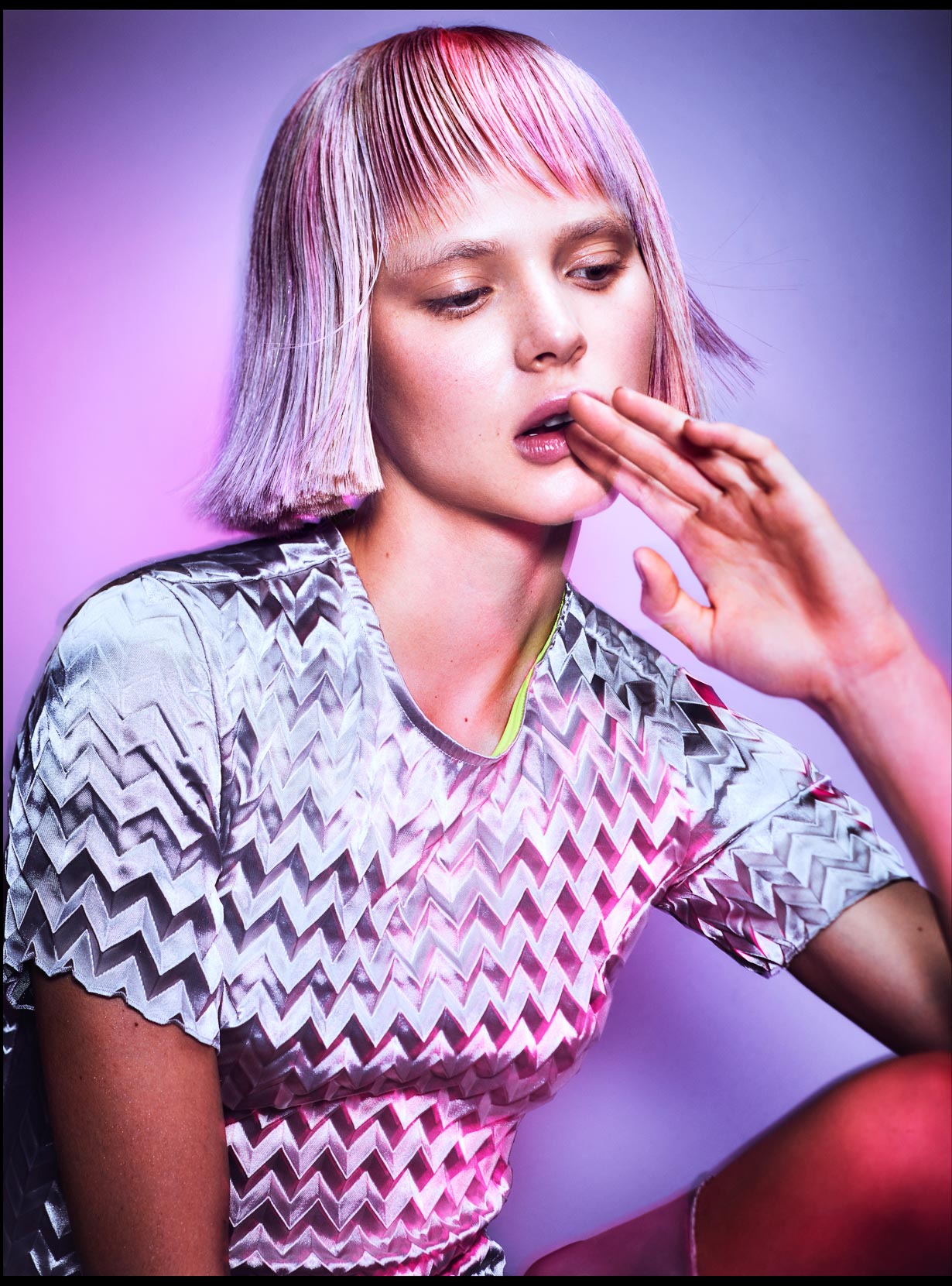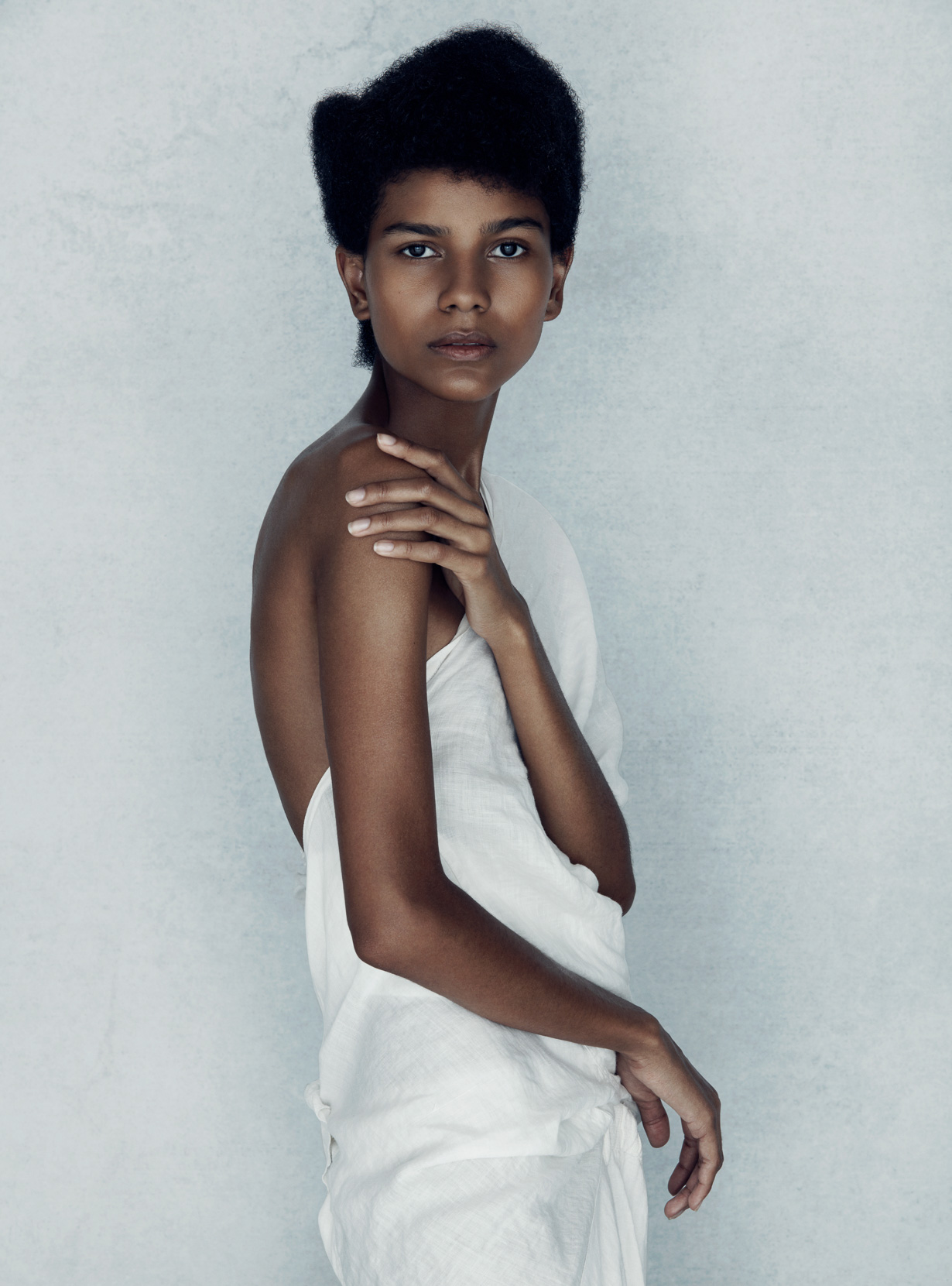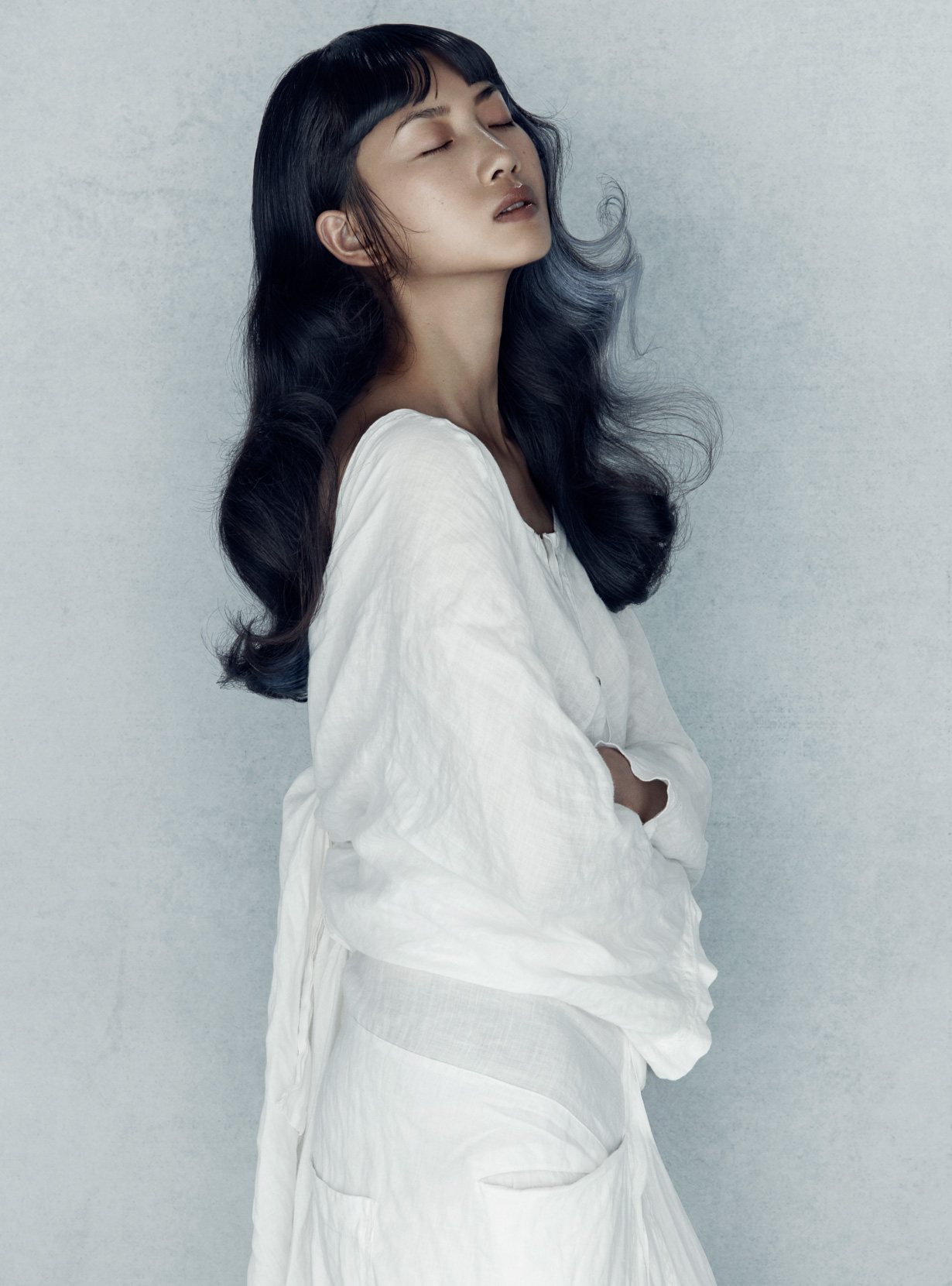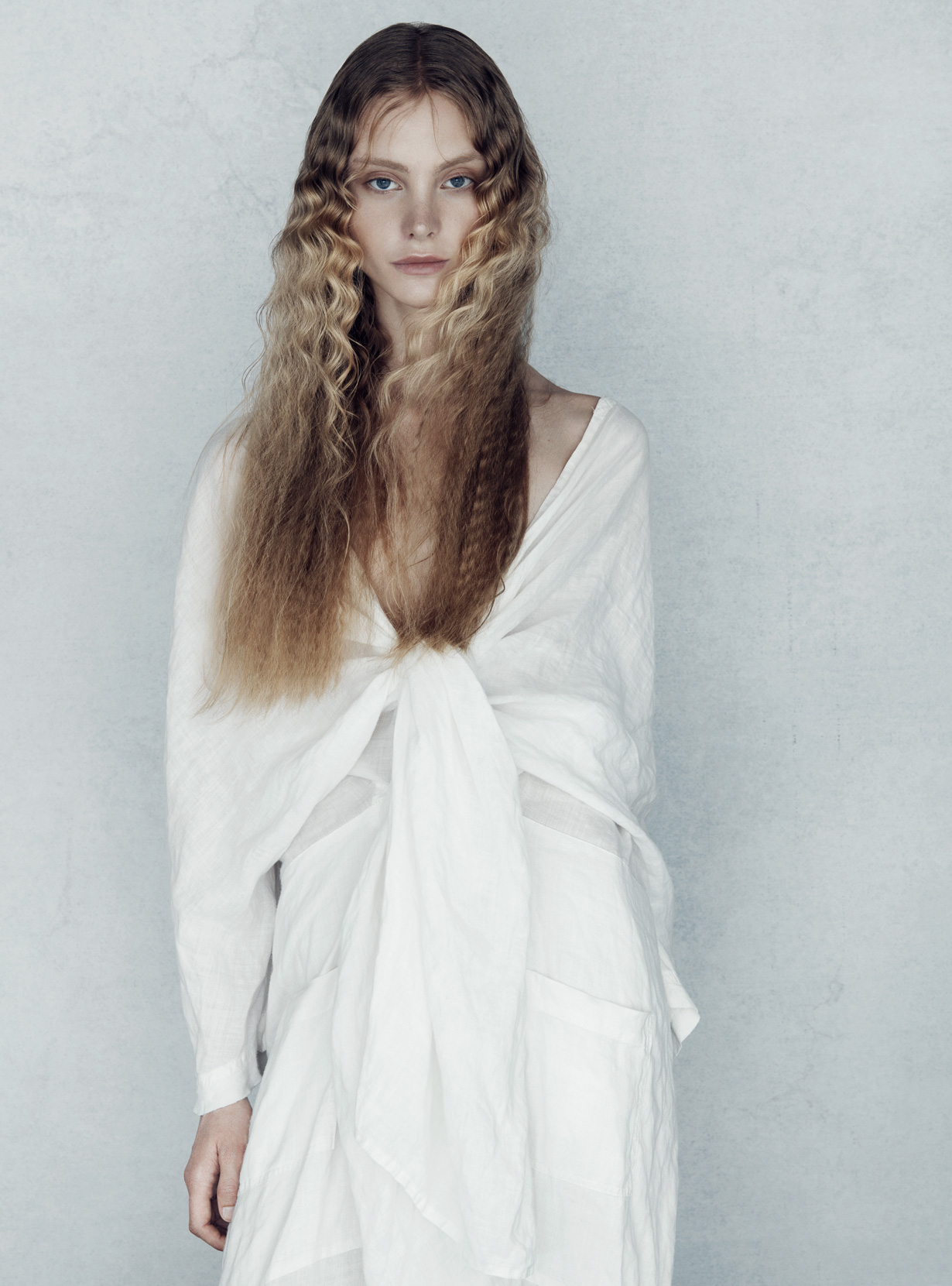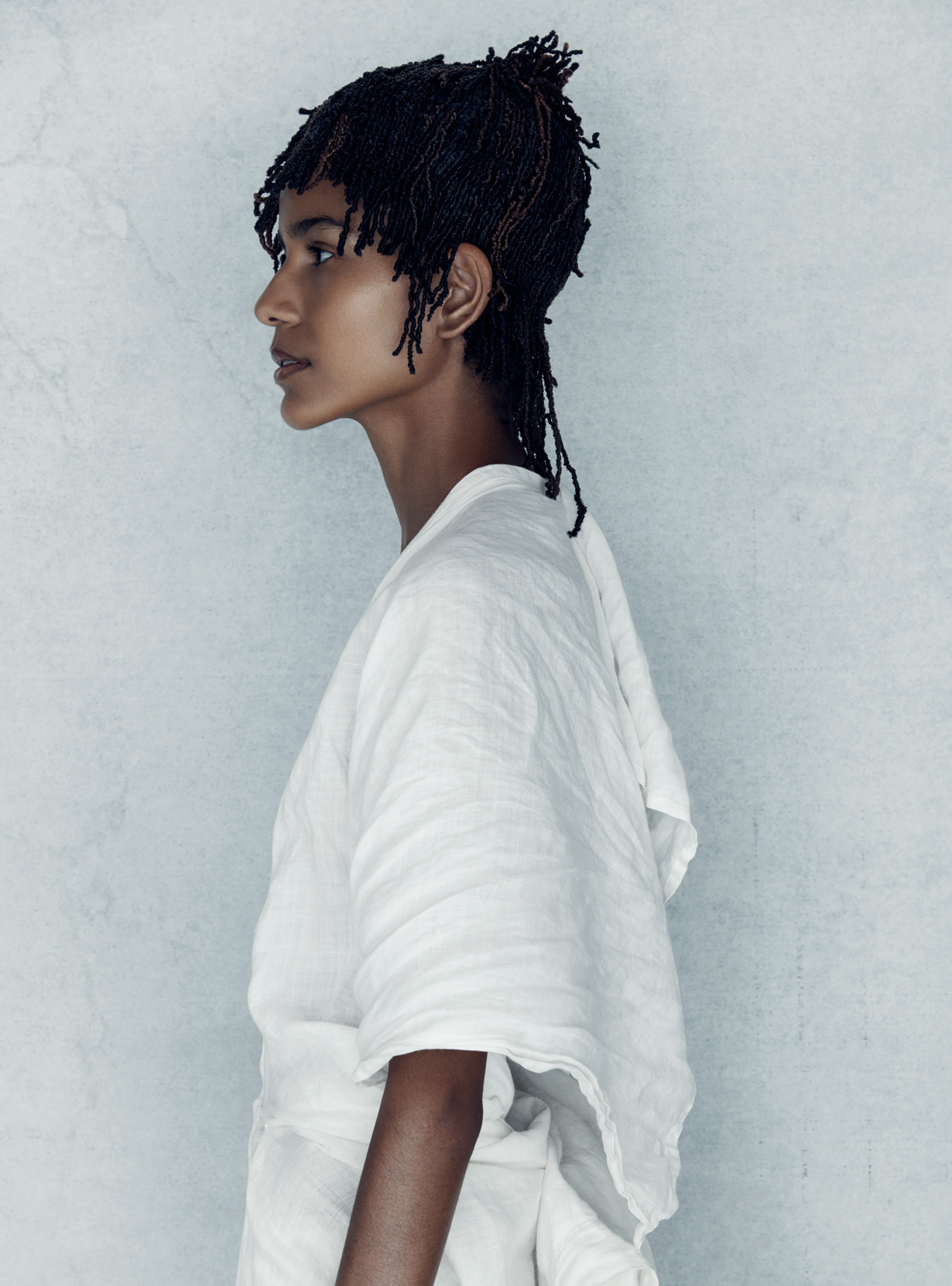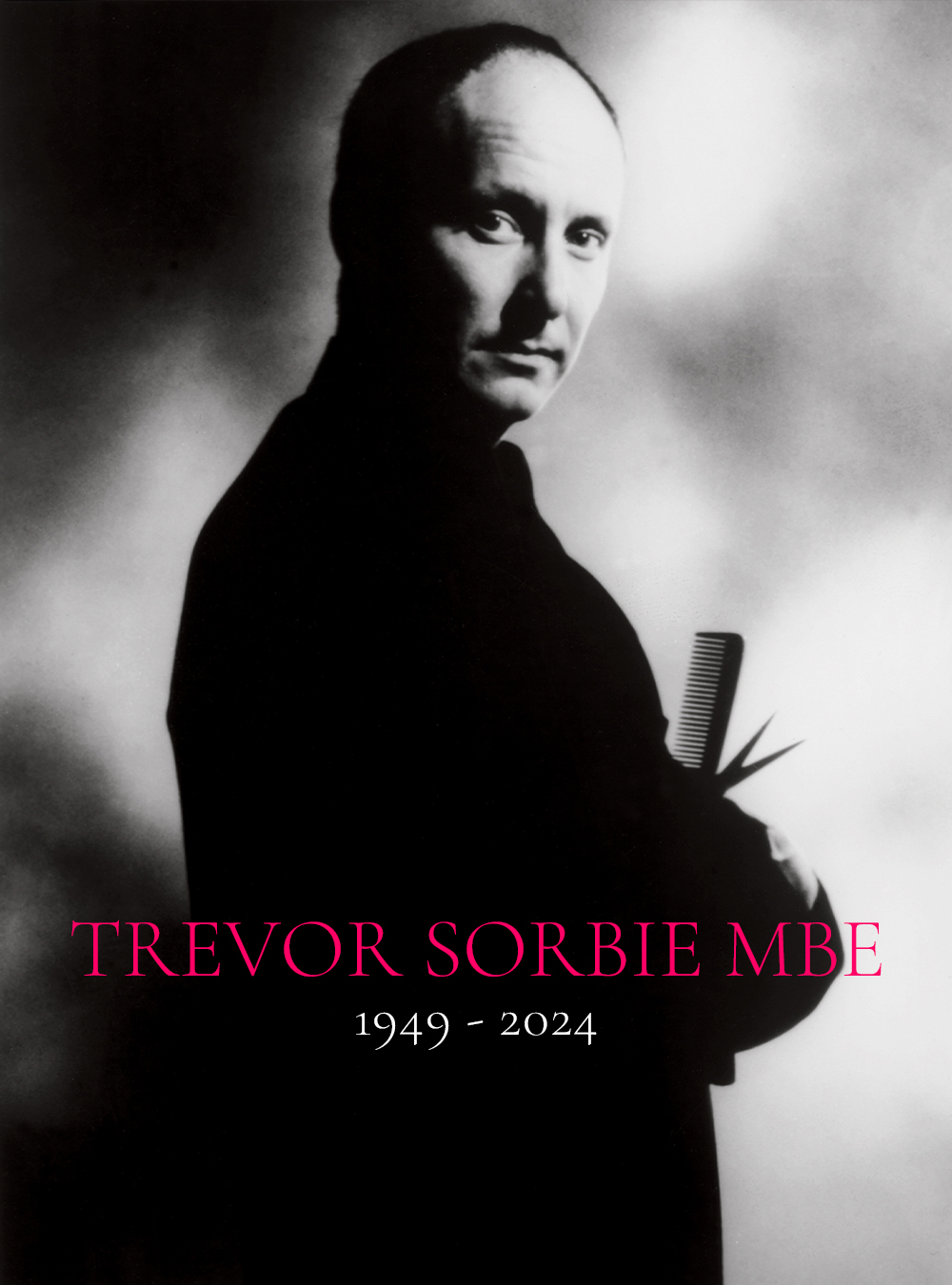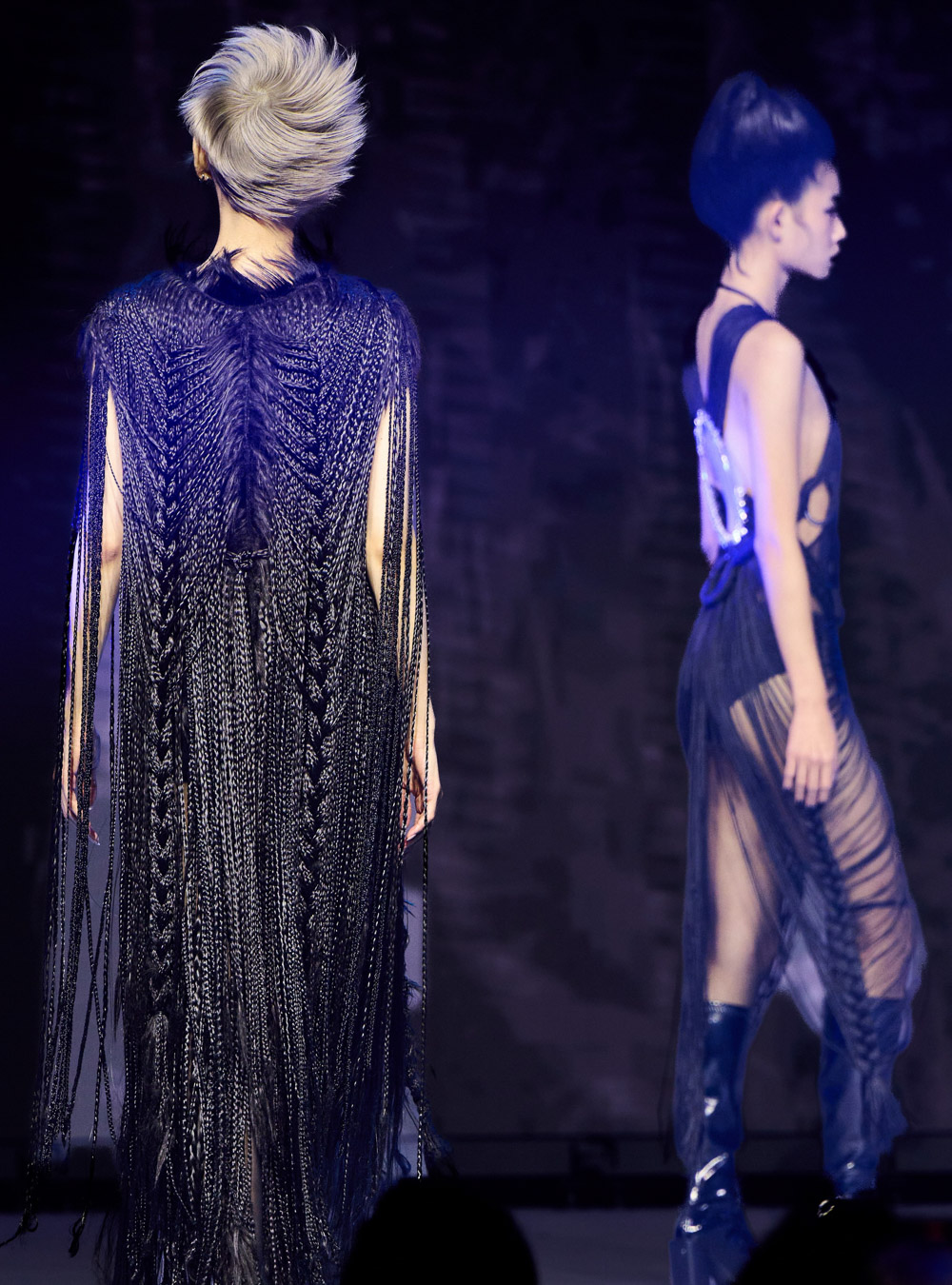PEOPLE: INFRINGE meets the reigning British Hairdresser of the Year Sally Brooks and talks daring career moves, and reworking the industry’s reputation
Interview: Anthony Mascolo
Photographs: Jenny Hands
Special Thanks: Sally Brooks
As the first woman to win British Hairdresser of the Year since 2005, Sally Brooks did not only make a great debut winning her first ever nomination in 2017, but she went on to defend her title in 2018 and won again. Young Brooks was initially hoping to end up in theatre as a makeup artist, but as fate would have it, she found herself in a trendy London salon learning the craft of hairdressing under the guidance of the renowned Trevor Sorbie. Twelve years later, she’s moved on and opened Brooks & Brooks, together with her partner and ex-husband Jamie.
Earlier this year, her documentary Journey To My Destination was released on Amazon. Originally meant to be a couple of YouTube clips, the project continued to grow. Finally, a decision was made to produce a full length documentary film with the intention to dismantle false perceptions around being a hairdresser and the hair industry, and display the craft in the positive and creatively commendable light that it deserves.
Brooks spoke to INFRINGE Editor-in-chief Anthony Mascolo about the multidimensionality of both the hair industry and the industry’s workers, wanting to change stereotypical perceptions people have about hairdressers, and the importance of going with your gut feeling.
AM: I just wanna say that the things you’ve achieved are incredible and I want to go through a little bit of the journey, to know how you started. You’ve achieved British Hairdresser of the Year, the first woman since 2005. SB: I think it’s because I’m the first woman to be nominated for a long time. After leaving school, I worked as a florist. I wanted to go to makeup college, but my parents couldn’t afford to send me, so I decided to pay for myself. I worked as a florist and I earned £33.50 a week. It wasn’t really working well to save money. Then I saw a job advertised for manager of a garden centre and you needed a horticulture degree. I was 17, and I lied, told them I got a horticulture degree and that I was 23. I got the job; it was £260 a week, so much better. And then I worked 4 days at a pub in the evening. In the end my parents paid the rest. I went to this makeup college, and learned theatrical makeup. I’m a theatre girl, I love theatre. And then I just needed a job in London. Any job in London. And my friend was working for this hairdresser that I never heard of called Trevor Sorbie. He was looking for apprentices. I was now 19 and at the time in hairdressing you had to be qualified by the age of 21. I was nearly 20, so in the interview, Trevor asked me how long I had been hairdressing and I lied again and said for two years. Got the job. Cut a bob very unsuccessfully, so I actually ended up being called back into the office the next day. Trevor asked “how long have you actually been hairdressing?” and I was like “a week” and Trevor said “as much as I like you, you can’t qualify within a year so I’m going to have to ask you to leave.”
I was only there for a week, but something about hairdressing sucked me in. The people, the atmosphere, the opportunities, the diversity of it. I knew that it was what I wanted to do. But I couldn’t get the job with Trevor, and I wanted to have the job with Trevor. So he said I had to leave, and when I was about to leave the office door — and you can ask Trevor this — I turned around and asked “is it 3 years worth of training, or is it 3 years worth of time?” and he said “I don’t understand the question.” I said “it’s easy, do I have to qualify in 3 years of time, or is it about 3 years worth of exams?” and he said “exams” and I said “see you tomorrow” and that’s how it started. I loved it as soon as I joined them.12 years, and I loved every minute of it.
AM: And then you opened your own salon? SB: Yes, I never intended to have a salon, it was just something that happened. I really never thought it was where I would end up going but I think the time was right for me to move on. That was a really hard thing to do. Everyone says it’s hard to open a salon, but I think the hardest thing is opening a salon when you come from somewhere like Trevor’s because you’re used to working with certain types of people and you’re used to being around people that are all amazingly good and then you open your own salon and it’s all about you and you’ve got to build it. You can’t employ it, it’s a culture that you have to make yourself and I think the first three years was really hard.
“They look at you and me positively because we are at the top of our industry. But it’s very hard for society to look at a young hairdresser going in and say that that’s a good career choice”
AM: A lot of times you get hairstyles that aren’t created for the person, but rather for the hairdresser. But yours are. Your last collection was so beautifully soft and feminine. And you won British hairdresser twice. Amazing work. SB: Thank you. Yes, for the last collection I wanted to do something stripped back, almost naked. And I think every time you shoot a collection, it’s a part of who you are and a part of your state in hairdressing. I think a lot of people shoot in oder to win, and I don’t think you should. It has to come from somewhere. There’s a great sentence that Darren Ambrose says in the documentary I’ve made. He says that the person who wins the award is the person that taps into what the industry is feeling. And I think that’s a cracking sentence.
AM: I was a judge, and looking at the work I think you got some really interesting photography, something which people seem to forget about. Of course everyone is talented and everyone is trying to do their best. But it’s nice when you win. SB: It is nice when you win. And it is quite nice winning it twice. Last year I was a little more uncomfortable with winning it, but this year I was more comfortable.
AM: Why were you uncomfortable with winning? SB: I don’t know, I don’t think I’ve ever been one of the hairdressers that’s been in the limelight. And then I got nominated after all these years and I was like uhh… And I nearly didn’t accept the nomination — I had to think really hard about it because I’ve never done it before, meaning it’s never been a priority. And then you win it and it’s like “god what do the industry expect from me?” And then you win it again and you go “oh okay I can just be me. I’m doing something right.”
AM: I heard about this new film that you’re doing. It sounds amazing, tell me about that. SB: I think this new film has aged me 10 years. It started off with when I won the British hairdresser of the year, I wanted to do something to give back to the industry, that’s why I decided I wanted to do it. I met this amazing guy called Gabriel and he’s 28 years old and he’s a barber. And he was making two little three minute Youtube clips for my staff for a show we were doing. And every time we had the meetings and my team would leave the office I just started talking to him and he’s got this most amazing humbleness about him and passion for the industry that is really quite special. He grew up in Romania where there was not the type of opportunities we had. So he was always talking to me about looking at people like yourself or Vidal Sassoon or Trevor and that’s where he was getting all of his information from, but he couldn’t get much. We kept talking and talking and one day I said to him “could you make me a three minute YouTube clip to promote the industry the way the public needs to see it?”. When I see everything about this industry on TV I don’t understand it. I don’t connect with it. It’s not the people that I know.
It’s not a fluffy hairdressing documentary it’s about choosing a career you’re good at. Whatever that is when you’re at school, working hard and choosing your own destination. But there’s brilliant sentences like, I think it’s Richard who says this sentence “All this hard work you will find eventually is an investment”. You may not get paid much at the beginning. It’s a real hard career.
AM: Well for me, I say this a lot, we interview a lot of people and some of them aren’t really that proud to be hairdressers. They’re doing hair but really they want to be doing something else. But I’m really proud to be a hairdresser. SB: It’s interesting you say this, because making this documentary I learned a lot about hairdressers, and I knew a lot about the industry but I really learned a lot about the industry too. You’ve got a group of hairdressers where a lot of their families were hairdressers too. And then a lot of other people fell into it. There’s not a lot of people who chose it. But maybe that’s how we’re represented at schools. That’s what we need to change the mentality of. Also, society looks at a young hairdresser negatively. They look at you and me positively because we are at the top of our industry. But it’s very hard for society to look at a young hairdresser going in and say that’s a good career choice. And that’s the perception that hopefully this documentary will change. What I want is, once it’s out, it belongs to the industry. It’s not a Sally Brooks documentary. I’m in it for about three minutes. A client of mine said to me yesterday, you could make a TV programme. And I was like no, for some reason hairdressing doesn’t translate on TV programs. It’s not what we really do. What we really do is think a lot.
AM: It’s the gossip part of it, the reality kind of programme that they like. They prefer it when it’s a mess, when there’s drama. SB: I love the industry because it accepts everybody, but there are different types of hairdressers who all work really hard. And when you speak to hairdressers, a lot of them ended up being hairdressers because it is their creative form that they found but they also have so many other talents. It’s amazing what hairdressers can do. We’re not one dimensional at all.
AM: You’ve won twice, tell me about both collections, because they were very different. Very different. I always shoot very differently. The first one my brief to Jenny was I wanted to shoot a collection of eight pictures that I wanted to put in my house at home so I didn’t mind if they were cropped, full length, just a photograph that stands on its own. That’s what I love. I wanted to do something that was a bit more fashion, I wanted to do some full lengths. I didn’t want it to look like a hair collection, I wanted it much more lifestyle. And I wanted it to be quite colourful. Basically it was a picture that wasn’t shot for a hair collection. It was a picture that stood up on its own.
AM: Are you thinking “I’ve got to do this kind of hairstyle, and that kind of hairstyle”? SB: No.
AM: You find models that you like and you create a picture. SB: 100%. On my second collection I chose not to meet the models until the day of the shoot, which is bonkers. I love seeing a polaroid of a girl with no makeup on. That’s how I get inspired. From a person. More than I do from hair or fashion really. I had seen the polaroids, met them on the day, thank god I liked them when they walked in. But it made me work much more organically. And it made me not force what I was doing. Obviously when you do a collection of pictures I sleep on it for about six months. When you do a show you don’t suddenly go “oh I’ve got to think of a show”. It’s something that you’re constantly working towards in your head. As soon as I would finish work, I get on the bus, I get my phone out and I’m looking for inspiration all the time. So that when somebody asks me to do something, I’m not forcing an idea, it’s something that I actually believe is where I’m going at the moment. The second shoot, being brave enough to go into the studio that morning, the stylist got the most amazing clothes, they were amazing, but it wasn’t what I wanted! So we had all the Alexander McQueens and the full rail of clothes and every time we shot a picture, it was forced. I was trying to do a fashion shoot. And right at the bottom of her bag she got one crumpled linen Zara dress and we put that on and then we had to make that one dress into ten dresses because the linen gave it the organic feel, and it was just being brave enough to get rid of everything that was amazing.
- ANTHROPOLOGY OF HAIR
- ANTHROPOLOGY OF HAIR
- ANTHROPOLOGY OF HAIR
- ANTHROPOLOGY OF HAIR
- ANTHROPOLOGY OF HAIR
